@arstechnica Google is #AdTech so just wait for the Gemini-powered profiling and contextual advertising that’s coming for you and your logged in, 1st party Google ID.
#adtech
"“I’m here to tell you if you’ve ever been on a dating app that wanted your location, or if you ever granted a weather app permission to know where you are 24/7, there’s a good chance a detailed log of your precise movement patterns has been vacuumed up and saved in some data bank somewhere that tens of thousands of total strangers have access to,” writes Tau.
Unraveling the story of how these strangers—everyone from government intelligence agents and local law enforcement officers to private investigators and employees of ad tech companies—gained access to our personal information is the ambitious task Tau sets for himself, and he begins where you might expect: the immediate aftermath of 9/11.
At no other point in US history was the government’s appetite for data more voracious than in the days after the attacks, says Tau. It was a hunger that just so happened to coincide with the advent of new technologies, devices, and platforms that excelled at harvesting and serving up personal information that had zero legal privacy protections.
Over the course of 22 chapters, Tau gives readers a rare glimpse inside the shadowy industry, “built by corporate America and blessed by government lawyers,” that emerged in the years and decades following the 9/11 attacks. In the hands of a less skilled reporter, this labyrinthine world of shell companies, data vendors, and intelligence agencies could easily become overwhelming or incomprehensible. But Tau goes to great lengths to connect dots and plots, explaining how a perfect storm of business motivations, technological breakthroughs, government paranoia, and lax or nonexistent privacy laws combined to produce the “digital panopticon” we are all now living in."
#Surveillance #Privacy #DataProtection SurveillanceCapitalism #AdTech #DataBrokers

ORG's new report exposes Meta’s intrusive profiling of its users.
With the introduction of Generative AI to Meta’s ad tools, existing problems with opacity will get worse.
Anna Dent, author of 'Profiling by Proxy'.
By further automating ad audience selection on Meta with GenAI, we'll have less chance of understanding why certain people are seeing which ads.
It may also make it even harder to detect the use of proxy data that let advertisers dodge anti-discrimination or data processing laws.
Privacy over profits!
We're fighting back against Meta's use of personal data to sell ads.
Meta should give us options for opting-out of stalker ads. Until they do, you can use our tool to make this request.
Act now to #StopStalkerAds
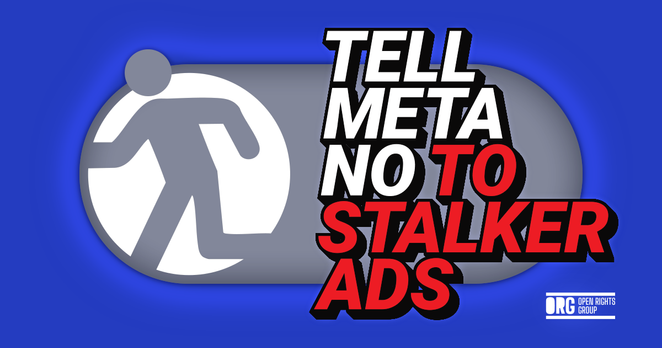
Don't you know that you're toxic... Meta goes from ghosting to gaslighting.
After our direct action last week, Meta is now replying to 10k requests to opt out of Stalker Ads.
And it's a fudge... they talk about not using personal data for some direct marketing. But don't mention targeted ads!
You have a legal right to object to your personal data being used for the purpose of targeted advertising.
Meta even admitted they must respect this right when they settled Tanya O’Carroll's case against them.
So why gaslight the rest of us?
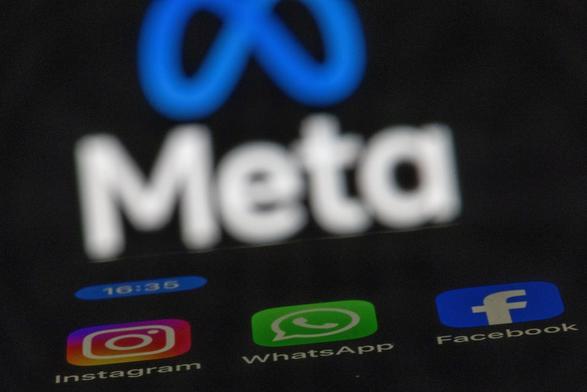
Meta must change how it does business away from profiteering on the back of our personal data.
Instead, our report suggests other advertising models that can respect our rights, like contextual advertising or subscriptions for advertisers.
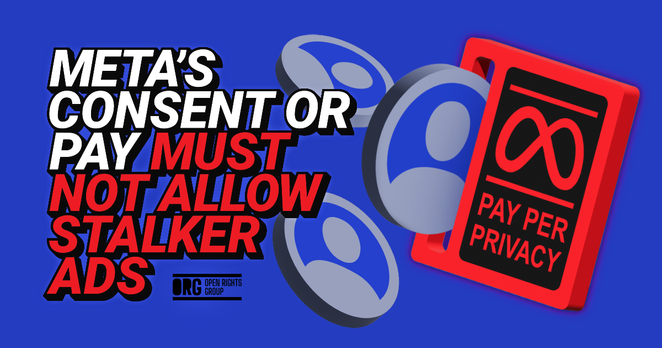
It's up to us if we want targeted advertising or not. It's about consent.
Meta's attempt to gaslight us in the hope we'll get tired or confused is another tactic to uphold an advertising model that isn't operating lawfully.
Tell Meta #StopStalkerAds (UK residents)

Meta profits by using your personal data for advertising.
By crunching your data into profiles, you become a target for advertisers and a cash cow for Meta.
Their latest attempt to claim to have honoured people's opt out request while ignoring the actual issue is shady stuff.
"One would rightly quail if just a few foreign firms owned Europe’s roads, ports or electricity grid. Yet, for 15 years, this is precisely what we’ve allowed to happen to our tech infrastructure — the backbone of our economy and democracy." #DMA #antitrust #Google #Meta #news #adtech #DigitalSovereignty #StrategicAutonomy https://www.politico.eu/article/digital-sovereignty-us-brussels-belgium-trade-talks-tech/
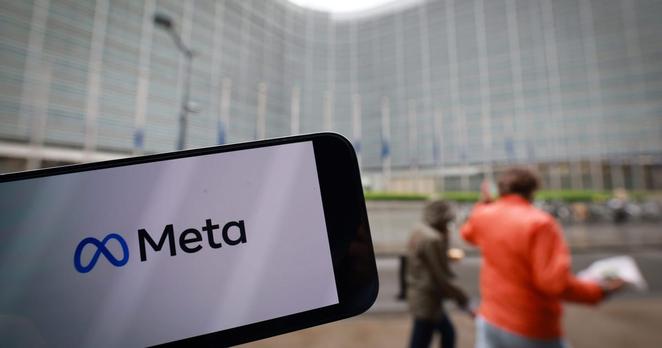
ICYMI: IAB establishes standard metrics for gaming advertising measurement https://ppc.land/iab-establishes-standard-metrics-for-gaming-advertising-measurement/ #Gaming #Advertising #IAB #DigitalMarketing #AdTech
ICYMI: IAB establishes standard metrics for gaming advertising measurement: Comprehensive framework addresses transparency gaps as 80% of U.S. internet users identify as gamers. https://ppc.land/iab-establishes-standard-metrics-for-gaming-advertising-measurement/ #Gaming #Advertising #IAB #DigitalMarketing #AdTech

Meta's murky ad system uses your personal data to sell adverts
What we know about how ads are targeted isn't consistent. This means advertisers can use proxy data on the DL that can cause discrimination against users.
Read our latest report
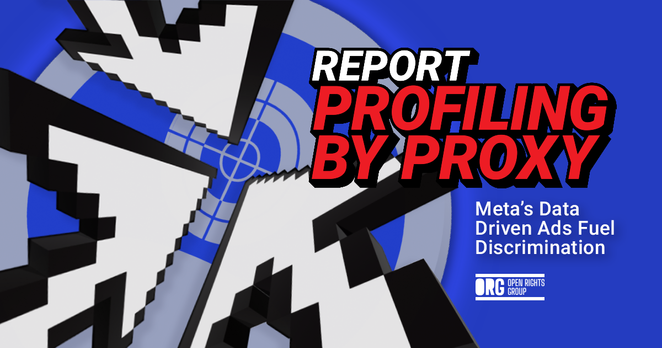
Your data, your choice
In a recent case against Meta's surveillance advertising model, they conceded that users have the right to object to their personal data being used for targeted ads.
Use our tool to tell Meta #StopStalkerAds

The Meta Pixel makes the situation worse.
The Pixel is embedded in other websites and sends data about their visitors back to Meta to be used for ad targeting.
So people with problematic gambling habits could be flooded with gambling ads.
Find out more
There are many examples of discrimination and harm caused by profiling and ad targeting.
They include:
Gender discrimination in who sees job ads.
Racial discrimination in housing and education ads.
Predatory data collection and targeting by online gambling sites.
Inappropriate products promoted to under 18s.
Discriminatory and predatory advertising of credit.
Plus more.
There are some targeting restrictions on special category adverts, such as political ads and ‘Financial Products and Services’ ads.
But mainstream ads, including gambling ads, have fewer restrictions. This lack of transparency on Meta's Ad Library means discriminatory practices can fly under the radar.
There must be more rigorous levels of transparency so Meta and advertisers can be held to account.
Proxies can be created by training an algorithm with historical data about user activity.
So associated characteristics can stand in for one that an advertiser wants to target.
This can reveal data which is protected by anti-discrimination and data processing laws.
Meta must not have differing transparency between advertising categories to make sure it's advertising system doesn't fuel discrimination.
ORG is calling for:
️ ALL ads on Meta’s platforms to have more rigorous transparency, so advertisers and Meta can be held to account.
️ Access to Meta’s Ad Library to be freely accessible without needing a Meta account.
